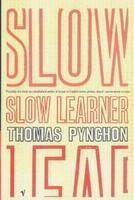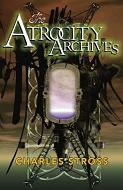 I found Empire of Bones, Liz Williams' third published book, well written, engrossing, and steeped in Indian culture and the politics of caste, which makes for a welcome change, and adds some exotic flavour to the seeding/galactic guidance/’Childhood’s End’ style plot.
I found Empire of Bones, Liz Williams' third published book, well written, engrossing, and steeped in Indian culture and the politics of caste, which makes for a welcome change, and adds some exotic flavour to the seeding/galactic guidance/’Childhood’s End’ style plot.
Recommended, overall.
Jaya Nihalani is the daughter of a conjuror – a man bitter and broken after the restoration of the caste system in India robbed him of his standing, and his future. Jaya is his apprentice – but she is more than a trickster. Jaya hears voices, or, rather, a voice, sometimes. The voice tells her of things to come, events yet to take place out in the wide world. Jaya turns into a truthsayer, and oracle and the centre of a cult, as her predictions are true. And as she starts to gather disciples (mostly Dalit like her, and other outcasts) around here the powers that be sit up and start paying attention. After an attempt at her life she turns revolutionary, trying to re-abolish the caste separations by force. And fails.
But the voices that Jaya hears are true and real: it is a Depth Ship, waiting for the first human ‘receiver’ to awaken that is whispering to her. The ship is half-alive, and has been sent here by the IrRas culture, to watch over a remote seeding project (Eir Sithe Tekehi, in their language), and to raise the alert when the project nears its completion.
So, besides the ship and its guardian, a Khatori (that’s his caste) named Ir Yth (that’s the short form, thanks for asking), the actual Caretaker and Overseer of the project, Sirrenin “Sirru” Es Moyshekal, ad Desqusai (lower caste than Khatori) is assigned and transported (electronically) to the Ship, which makes itself known to Jaya, and to the world now. And now Jaya is the human who links Earth with the unknown. She muses: “Oracle, magician, goddess, terrorist, and now envoy to the stars. We are many things, we Dalit.” She had passed through so many transformations that surely one more wouldn’t hurt.
Not everyone is happy – why in India, and not the lawn of the White House? Why a Dalit? Why this ex-revolutionary, who is being devoured by a strange genetic disease? And why does Sirry think that It Ir Yth has a hidden agenda? And why did his friend Verris’ project in Arakrahali fail, killing all the natives? Very few things are what they seem - Earth is in the hand of the equivalent of two civil servants, embroiled in office politics, who want to ‘harvest’ Earth. Is this a good or a bad thing? Jaya doesn’t know.
The book, besides the rather standard ‘seeding’ setup, and many parts which strongly hark back to ‘Childhood’s End’, deals with a refreshing number of other concepts which are much less trodden. We have the Indian political setup, with the abolition and later re-instatement of the caste system, the following civil war, the legacy of the British occupation (in people’s heads and blood), all threaded through with the local religious customs and Gods.
Ir Ras, the alien (or is it?) culture is also caste based, but with much clearer separations, as each caste (at least these days) comes from a planet, seeded with specific genetic material, which reaches maturity. Humans are a subset of the Desquisai, as they seeded Earth. But all are regarded as IrRas, and not different races. Intriguing culture, she should do more stories in it!
The aliens have many modes of communication – the book mentions speech, pheromonal, sexually, through touch signatures and more – there are mentions of ‘higher’ modes of communication, although the only one we see is some kind of limited telephathy which It Yrh uses on Jaya. They also have suppressors for involuntary pheromonal communication called ‘Scale Armour’, which controls what you signal when. A highly complex and complicated culture.
There also is an interesting glitch in the story: the Dalit fight a (genetically engineered) disease called ‘Selenge’, which spreads only amongst the untouchables. This would require them to be clearly genetically different – something the story, in keeping with reality, denies. A small gripe only…
The technology in the story is quite fascinating, too. The IrRas as quite focused on Bio-engineering, with their semi-alive ships, bio-tech ‘rafts’ for planet transport, their sentinent houses (some kinds of plants, really). On the other hand they are technological with their long distance communications, and their ability to scan and reproduce anyone at a distance to incorporate them in a ‘2nd body’, who can, in turn, download information to its older brethren (who usually is in storage during that time). They genetically engineer their helpers, other creatures on their planet, their tools, and their pets. IrRas uses virii for genetic engineering, to exchange information, and generally for societal benefit. That they are regarded as an illness of Earth is a clear case of (human) genetics going wrong somewhen after the seeding (something that will need to be fixed, of course).
This is a classic seeding/ galactic civilization setup, but much improved by the different caste based cultures and their interaction. To some degree this reminds of Justina Robson’s Natural History, but it takes the concept to a much bigger and clearer conclusion.
The characters, from who’s changing viewpoint the story is told, are engaging and come to life on the page, even the aliens (Sirru more than It Yrh, it has to be said). The story starts slowly whilst providing all the background and baggage of the main characters, but then pick up speed and drive, and does not let up to the finale. Highly captivating reading – I missed several stops, and got to work late once, all courtesy of this book.
Highly recommended reading, the best I’ve seen from Liz so far (and she’ll have to try hard to top this)!
More Liz Williams
Title: Empire of Bones
Author: Liz Williams
Reviewer: Markus
Reviewer URL: http://skating.thierstein.net
Publisher: Tor
Publisher URL: http://www.toruk.com
Publication Date: 2002
Review Date: 4 May 2007
ISBN: 0330413326
Price: UKP 6.99
Pages: 422
Format: Paperback
Topic: SF
Topic: India













